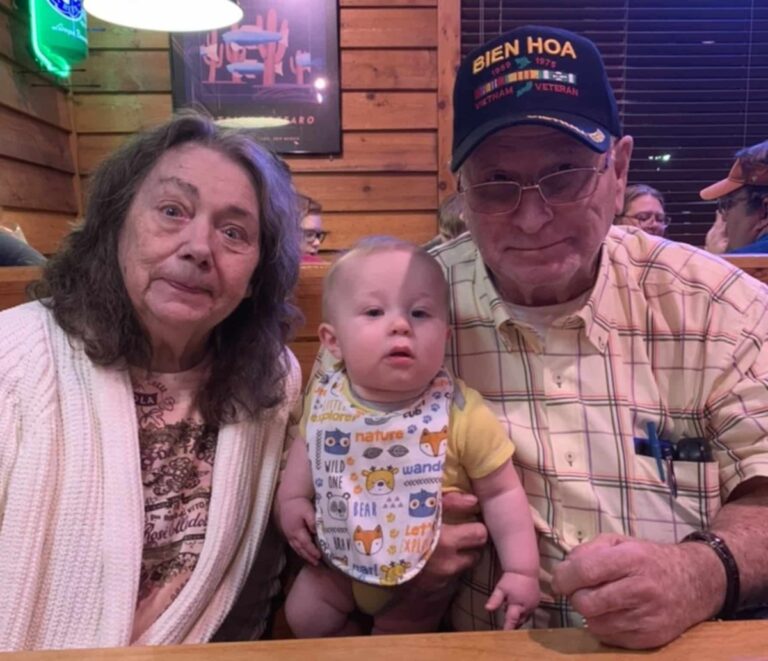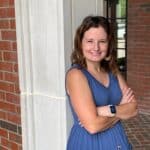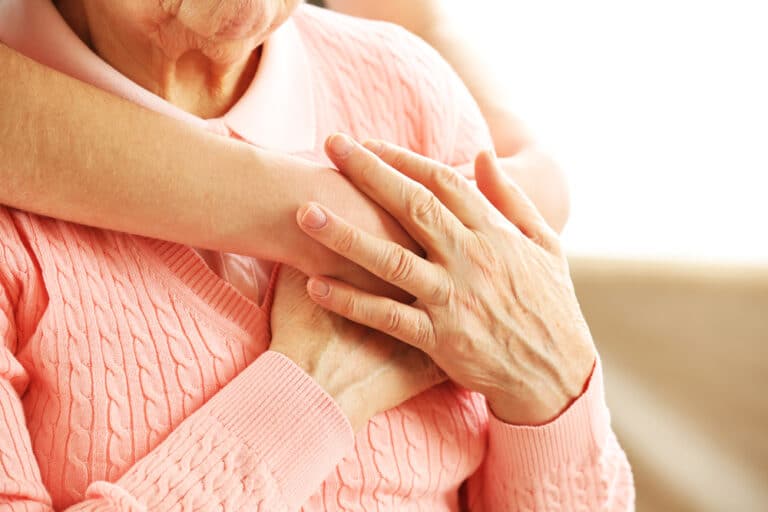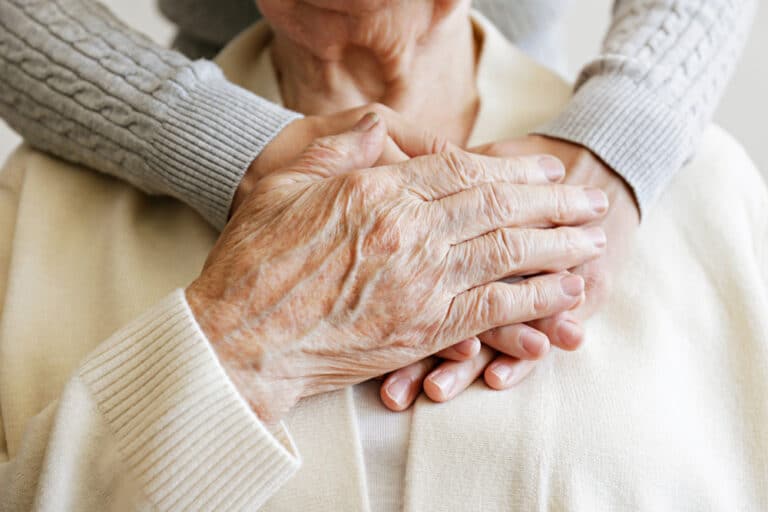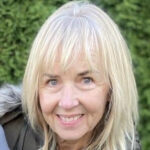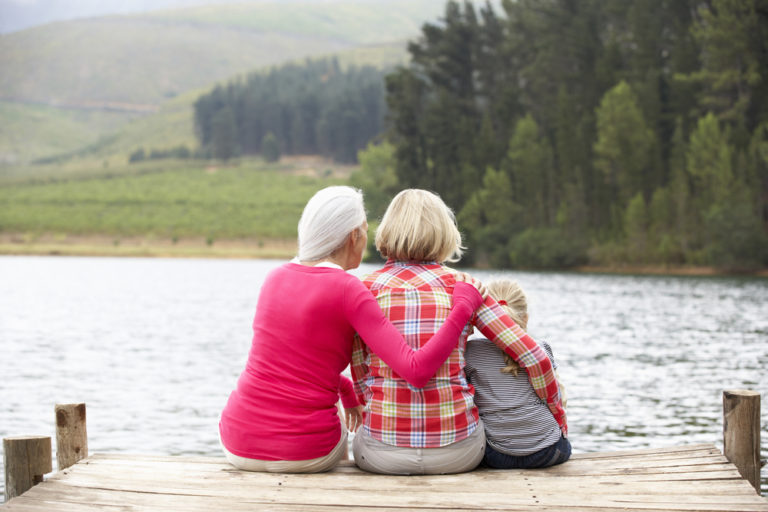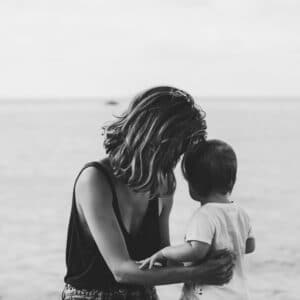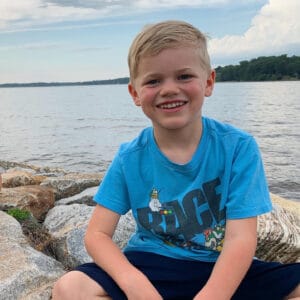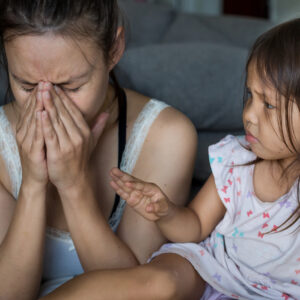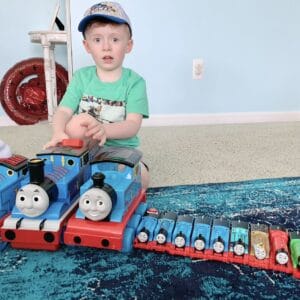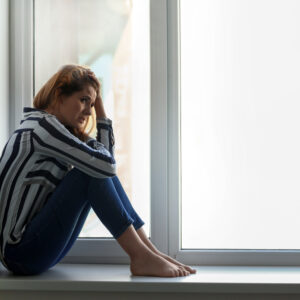Caregiver. Nurse. Custodian. Mother. Parent. Daughter. Son. Rinse, lather, repeat.
If you had told me 10 years ago (heck, even 6 years ago) that I would quit working, care for my babies, and provide care for my parents on a daily basis, I would have laughed you out of the room.
I remember how hard it was to go back to work after I had my son, commuting 45 minutes each way. I remember calling home during lunch (my husband was able to stay home after my maternity leave had ended) and yearning to see my baby boy. My new mom realizations, combined with a growing awareness of my parents’ needs, let me know it was time to make some changes in my life. The cards had been arranged in a way that said, “Okay, Brittany, it’s time. Let go and let God!”
I ended up getting a job that was within walking distance of my house. Things were going pretty well, but then, being closer meant I noticed more about my parents, more about how my baby boy needed me. I made the decision to pause my career and become a full-time caregiver for both my parents and my son. Cue the COVID pandemic.
While learning how to be a first-time mom, I also oversaw everything for both of my parents while my brother did everything he could from afar. By this point, I had become pretty seasoned at talking to and advocating with doctors, making heads and tails of symptoms and diagnoses, making a schedule for the doctor appointments, making sure the fridge was stocked, and making sure my mom had plenty of time with my son.
RELATED: I Am Two Moms: One To My Children and One To My Aging Mother
No matter what was going on with her own health, my mom always wanted to make sure everyone was taken care of and happy, and that her grandson had an oatmeal pie and some fresh fruit. She always found a way to calm the chaos that came with caring for my dad, who had recently (and finally!) received the diagnosis of vascular dementia. My mom always found peace. She always found ways to pause. She always found ways to be loving and thankful.
As I took a more active role in caring for my father, my mother’s ailing health was hard to ignore. I began providing more support for her while navigating caring for someone with vascular dementia. On the outside, my dad was a normal person without disabilities, but on the inside, those who knew him knew something was amiss. Without any guidance from doctors, agencies, or anyone else, it was trial and error, trying to figure out a broken system. It was harder than you could imagine.
When you ask a caregiver how they are doing, they don’t tell you how tedious day-to-day activities become or how phone calls with siblings morph into recaps of doctor appointments, new symptoms, or interventions sprinkled with a backdrop of, “I know you are two hours away, but please help. I don’t know what to do.” Siblings stop talking about things siblings do, and instead, become coworkers.
Caregivers don’t give up the dirty details freely, they don’t let you know, “Hey, I’m struggling. I was up half the night checking the security cameras to make sure the CPAP machine was on and that nobody had fallen.” No, nobody talks about this. This is not in the job description. If you’ve seen the short on YouTube, entitled “Worlds Toughest Job.” I imagine the job description would be similar: the job requires high stamina, constant bending over and being on your feet, no breaks, a degree in medicine and finance, the ability to work in a constantly chaotic environment with no sleep, and expect an extra workload on the holidays, all while having a happy demeanor. Who in their right mind would do this?
As my mother continued to need more care, palliative care and life care became involved. Many cringe at these words. I did. These entities facilitated difficult, nearly impossible conversations. Conversations that most are never ready to have. These conversations about end-of-life care are painful, to a degree that you can’t understand until you are in that position.
I remember my mother always getting so upset and crying when palliative care came to do their check-ins, despite her seemingly improving health. My mom was doing great, but then, she wasn’t. Palliative care made sure the important conversations were had and that I was ready, long before I expected to be. I could not be more grateful for that. Looking back, I have no idea how I would have navigated my mother’s final hospital stay or her passing without their help. Imagine talking with families about end-of-life care and death on a daily basis. Not just one patient and one family every day, but many patients and many families, over and over and over. Rinse, lather, repeat. Caregivers are heroes.
RELATED: If Your Kids and Your Parents Depend On You, You Might Be in the Sandwich Generation
According to A Place For Mom, 17 percent of the adult population provides unpaid care to an adult over the age of 50 and 75 percent of those are women who spend the equivalent of a full-time job providing this care—all while either working a job themselves and/or providing care for their own children. In all, caregivers provide an estimated $470 billion in unpaid labor each year.
Caregivers have been shown to see an increase in depression by 40 percent and a 53 percent increase in diagnosis of two or more chronic conditions (14 percent higher than the general population). Fourty-four percent of caregivers are concerned about the emotional toll caregiving has taken on themselves (A Place For Mom). All of this should come as no surprise, but here we are. Have you thought about what it means to be a caregiver to this degree?
Caregiving has been the hardest test, the hardest job, I have ever encountered. Working through the behavioral issues, the physical struggles, the endless advocating to deaf ears, the daily battles. The struggles are real and they are hard. Looking back at the girl who thought, “Who? Me? A caregiver? A stay-at-home mom?” What a fool she was. Caregiving has been the greatest treasure I have yet to know on this earth.
Pause as my mother would. Thank the moms around you. Thank the nurses. Thank the doctors. Thank the caregivers. Be patient with them. Be kind. They are tired. We are tired. But we will still get back up tomorrow and do it all over again—a million times over we would, without even being asked.
“For even the Son of Man came not to be served but to serve others and to give his life as a ransom for many” (Mark 10:45).
Originally published on the author’s blog

If you liked this, you'll love our book, SO GOD MADE A MOTHER available now!
Order NowCheck out our new Keepsake Companion Journal that pairs with our So God Made a Mother book!
Order Now


